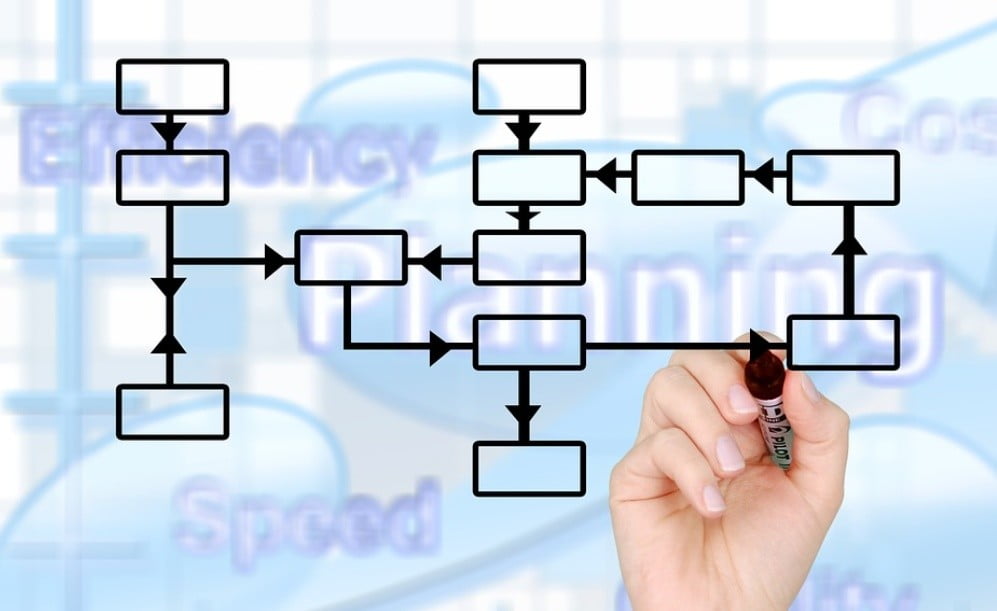Waterfall and agile are two popular approaches for software development. While waterfall takes the rigid, documented path, agile favors flexibility.
A third approach called lean software development also exists. Although, entrepreneurs are not as familiar with it as the other two. This blog will clear the fog around lean software development and learn about the approach in detail. Let’s begin:
What is Lean Software Development?
Lean software development is a software development approach that emphasizes minimizing wastes, optimizing efficiency, and delivering the features a product needs. Also called minimum viable product strategy, the approach focuses on first providing an MVP version of its creation in the market, observing users’ likes and dislikes, and then iterating the product based on this feedback.
Seven Principles of Lean Software Development
- Identify wastes and develop a plan to eliminate them. Wastes in software development can be unnecessary code, extra tasks, mundane processes, or bugs.
- Build quality into the lean process with pair programming and test-driven development approaches.
- Encourage learning within the team through tactics like code review and meetings.
- Quickly release a product into the market, collect customer feedback, and use that feedback for improvement.
- Build an environment of mutual respect, collaboration, and communication within your team.
- Keep optimizing the process to become more efficient with time.
There is a blog on the lean software development approach principles that I was reading recently. You can check it out to learn about these lean software development principles in detail.
How is Lean Different from Agile?
Lean and agile work together so efficiently that you can hardly tell them apart. Therefore, some experts also refer to it as Lean-Agile. Here are a few similarities between lean and agile:
- In both approaches, the product development team is responsible for setting the pace and delivering the product on time.
- The agile retrospective is very similar to the “optimizing the whole” principle of Lean. In both approaches, teams gather to discuss success and challenges post the completion of the project.
Although, it doesn’t mean there is no difference between Agile and Lean. Agile always focuses on building better processes, while lean emphasizes improving processes. In agile, we want to create products that meet customer expectations. Lean, other the other hand, is just another way to do it.
Note: We also could lean as one of the agile frameworks besides Scrum and Kanban.
Why Should I Use Lean Software Development?
Compelling benefits are the primary reason behind using lean software development. Not only does it help you deliver quality products on time, but it also ensures you can incorporate changes. Here are a few other reasons to use lean software development:
- Lean software development encourages collaboration, mutual respect, and knowledge sharing. Therefore, the approach ensures your team acts together to avoid bottlenecks and deliver the product on time.
- Lean also encourages self-reliance by empowering your team to make its own decisions and work together.
- Lean software development ensures continuous improvement by encouraging constant communication with customers and stakeholders.
- Lean eliminates waste and reduces unnecessary costs by delivering software on time.
- Since Lean emphasizes flexibility while ensuring timely delivery, development teams have enough time to incorporate changes and deliver a product based on continuous feedback.
- With properties like flexibility, efficiency, continuous improvement, and collaboration, lean software development ensures we deliver high-quality products.
What Challenges Can I Face in Lean Software Development?
Although Lean is an efficient software development approach, it has some downsides. Here are a few challenges you can face in lean software development:
- Your development efforts can suffer if there is no clear communication and collaboration in your team. Hence, it is essential to train team members so that they can easily take on each other’s tasks and adapt to new challenges.
- Tracking wrong metrics or not tracking them can lead to unnecessary confusion and wastage of time and resources.
- In lean, software requirements evolve with customer feedback, which may happen too frequently. Hence, you may reach a situation when the project becomes too complex.
- Lean software development is heavily dependent on the team involved. As a result, it is not as flexible as other processes.
When Should You Use Lean Software Development?
Lean is an excellent software development approach. “But is it for you?” is an important question that you must ask yourself.
The truth is, lean software development is powerful. But it’s not for everyone. So, here are a few things you must have before you decide to use lean software development:
- You have an outstanding development team with experienced people capable of handling critical tasks independently.
- The team has excellent communication and collaboration, i.e., they have each other’s back when things go haywire.
- You trust your team to make the right decisions, be prepared for challenges and have an open mindset towards learning.
If all these conditions are yes, Lean software development is for you. Otherwise, you must rethink your decision and choose a development approach that best suits you.
Related posts:







